Panel Considers Challenges to Chevron Doctrine and Fate of Administrative State
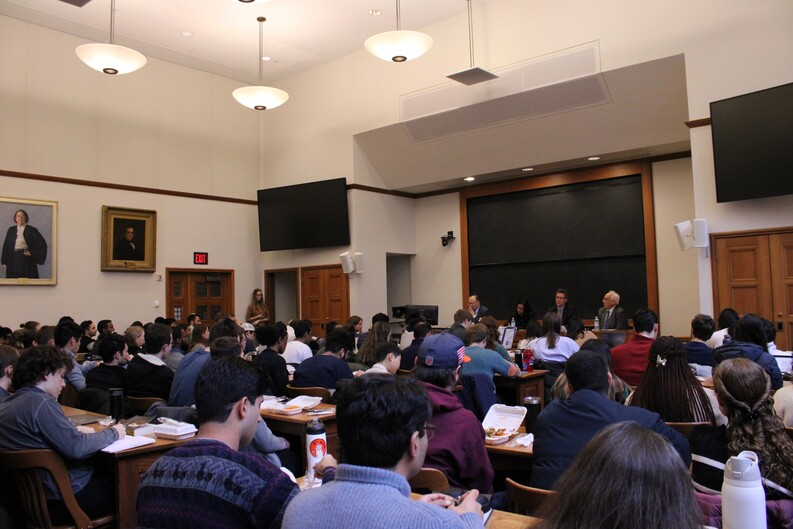
The Supreme Court is now reviewing a major challenge to the administrative state. Two cases, Loper Bright Enterprises v. Raimondo and Relentless, Inc. v. Department of Commerce, both challenge the 40-year precedent of judicial deference to agency interpretations of statutes known as the Chevron doctrine. To shed light on the potential implications of these cases, the Solomon Center for Health Law and Policy4 hosted leading scholars, scientists, and Supreme Court practitioners for a panel discussion on Jan. 30.
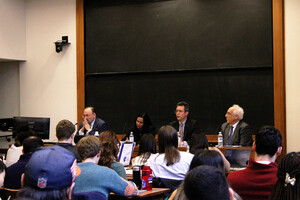
The Chevron doctrine, so named for the 1984 Supreme Court case Chevron, U.S.A., Inc. v. Natural Resources Defense Council, has been a mainstay of federal administrative law for decades. Under this doctrine, a court must defer to an agency’s reasonable interpretation of a statute if the court determines that the statute is ambiguous. Attorneys, scholars, and judges have debated what the doctrine means in practice since Chevron was decided. In recent years, the Supreme Court has announced limits on Chevron — most notably the “major questions” doctrine, which calls on courts to decide some statutory questions of high political importance without deferring to an agency’s reasonable interpretation. These limits have intensified the debate over Chevron, with some court observers arguing that they are further evidence Chevron is unworkable and should be overruled. The Supreme Court declined requests to reconsider Chevron — until Loper Bright and Relentless.
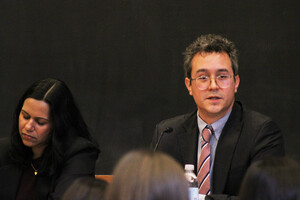
Blake Emerson, Ph.D., Professor of Law and Political Science at UCLA and Visiting Professor of Law at Yale Law School, began the discussion. Emerson noted that although Chevron has been historically important, it is unclear how much of a difference its absence would make to the legal system. Emerson emphasized that a primary question in the debate over Chevron is the extent to which Congress can delegate authority to agencies and how courts can identify the difference between a true delegation of authority and ambiguous drafting.
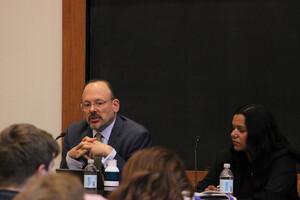
Jonathan Adler, Johan Verheij Memorial Professor of Law and Director of the Coleman P. Burke Center for Environmental Law at Case Western Reserve University School of Law, continued the conversation. Adler pointed out that from the beginning, Chevron was criticized from both sides. In practice, Adler argued, Chevron provides few guardrails for lower courts to rely on when determining whether deference to an agency is appropriate in a specific case. In the absence of clear guidance, lower courts can defer to agency interpretations unnecessarily.
Next, the audience heard from Dr. Reshma Ramachandran, Assistant Professor of Medicine and Co-Director of the Yale Collaboration for Regulator Rigor, Integrity, and Transparency (CRRIT) at Yale School of Medicine. She highlighted how Chevron has impacted the work of clinicians, other medical professionals, and the broader scientific community. Ramachandran filed an amici curiae brief with Dr. Joseph S. Ross, another leading expert in pharmaceutical and regulatory policy, in Relentless, urging the Court to uphold Chevron. Ramachandran shared a summary of the brief’s arguments.
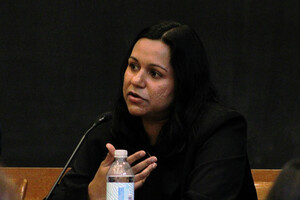
Ramachandran explained that Chevron allows agencies such as the Food and Drug Administration to make complex policy judgments based on deep scientific and technical expertise. Overturning Chevron would open the FDA to more litigation, requiring the agency to divert more of its limited resources away from its core regulatory work, Ramachandran said. She added that it would also create a risk of inconsistent rulings across the country, leading to higher compliance costs for regulated entities and making it more difficult for the FDA to promulgate industry guidance.
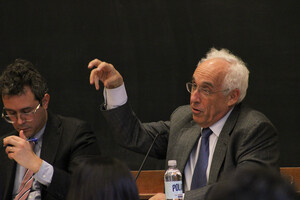
Andrew Pincus, Supreme Court litigator and partner at Mayer Brown LLC, then gave a legal perspective. Pincus focused on one of the court’s discussions during oral argument, the proper course of action when “the law runs out” — when a court, after using all of the usual tools of statutory interpretation, still finds a given statute ambiguous. For some of the justices, determining that the law ran out is a sign that the question at issue is really one of policy, not law. In the view of these justices, it is therefore permissible for the court to defer to the agency’s interpretation. Other justices were skeptical that the law could ever run out. They doubted it would be possible even if the law could “run out” to craft a clear test for determining whether a statute was truly ambiguous. Pincus, referring to his fellow panelists’ earlier remarks, said he wished that the justices had spent more time on delegation: how to determine when Congress actually intended to delegate authority to an agency.
The event was co-sponsored by the Yale Health Law and Policy Society (YHeLPS), Yale Federalist Society, and Yale American Constitution Society for Law and Policy (ACS).


